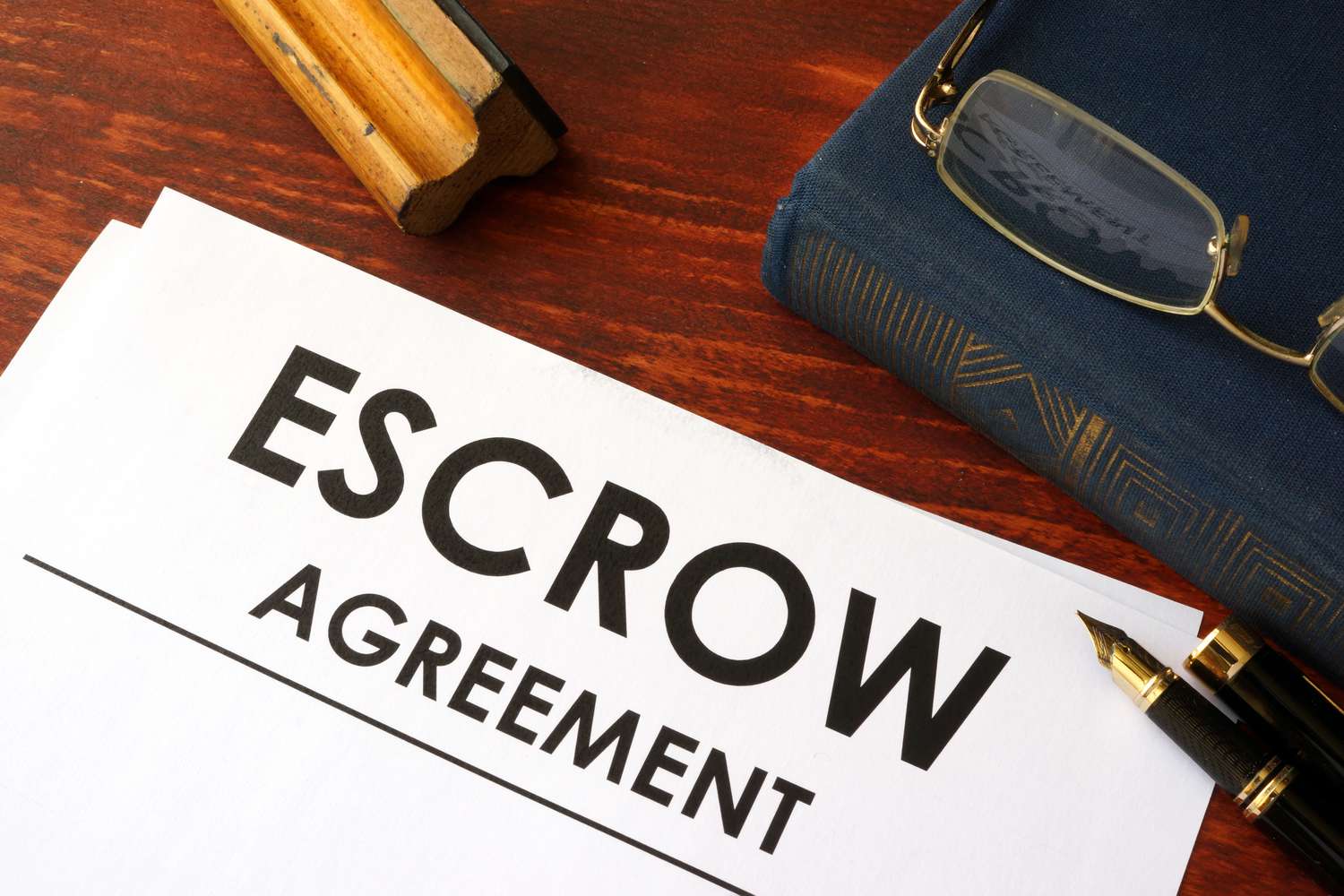What Is ‘In Escrow’?
In financial transactions, the word “in escrow” refers to an asset, such as money or property, that is being held by a third party until legal conditions for transfer are met. This transfer is typically made on behalf of a buyer and seller.
Typically, items are held in escrow until the financial transaction is complete. Escrow holds valuables such as real estate, money, stocks, and securities.
Key Conclusions
Escrow funds or assets are temporarily transferred to and kept by a third party, typically on behalf of a buyer and seller, in order to effectuate a transaction.
The term “in escrow” is commonly used in real estate deals when property, cash, and the property’s title are kept until predefined criteria are met.
Escrow is commonly connected with real estate transactions, but it can also refer to any circumstance in which funds are transferred from one party to another.
Escrow assets might include jewellery, real estate, money, stocks, and other securities.
Understanding ‘In Escrow’
The most frequent use of escrowed items is in real estate transactions. Until all requirements mentioned in the escrow agreement are fulfilled and ownership may be transferred, the property, money, and title to the property are frequently held in escrow.
The terms and conditions between the parties to the transaction, as well as each party’s obligations, are described in an escrow agreement. A trustee known as an escrow agent oversees the items placed in escrow.
Until certain contractual duties are met, the assets are held by the escrow agent, who is usually a lawyer. The escrow agent returns the money or property held in escrow to the rightful owner after the terms of the agreement are met.
Real Estate In Escrow
The buyer is unable to occupy or take possession of the property while it is kept in escrow. During the escrow procedure, real estate transactions must pass a number of steps.
An escrow account created at the time of mortgage closing is also referred to as escrow. In this instance, future homeowners insurance and property tax payments are stored in an escrow account apart from the mortgage holder’s monthly principal and interest payments. Typically, the escrow account is kept open for the duration of the mortgage.
The typical requirements and justifications for holding assets in escrow are listed below.
Appraisal
Prior to being sold, the property needs to be appraised. If the property’s appraised worth is less than the agreed-upon purchase price, problems can occur.
If a property’s asking price exceeds its appraised value, banks will not lend money for that amount. The buyer may ask the seller to reduce the price or look for funds to make up the difference in the agreed-upon purchase price of the property.
Home Inspection
If a property passes a home inspection, a buyer may consent to buy it. Until the inspection is finished, the money for the transaction would be kept in escrow. The buyer or seller will be required to buy or sell the property after the terms of the offer are met.
Financing and Insurance
The real estate deal can be placed in escrow so that it wouldn’t be finalised until the buyer secured bank financing or a mortgage. Additionally, the buyer can have trouble obtaining the insurance and other coverage required to finish the sale. The escrow agent would void the purchase deal if the buyer failed to secure the necessary insurance or be authorised for the financing.
Title Search
A title search, which involves examining public records to ascertain the property’s ownership, is carried out prior to buying a house. The purpose of the title search is to ascertain if the property is subject to any liens or other claims. When there is an outstanding lien, it indicates that the property was used as collateral for a loan. While the title search is being carried out or settled, a property may be kept in escrow.
Important
Any real estate transaction must have a clean title, which means there are no liens against the property.
Zoning
It’s possible that the buyer intended to utilise the land for a use that doesn’t comply with current zoning laws. While the property is in escrow, the seller may request a variance so that the buyer can carry out their intended plans once they have complete ownership of the property.
Repairs
There may have been assurances in the acquisition that the seller will take care of any necessary repairs to the property. This could involve rebuilding a portion of a building or removing landscaping elements like trees. The transaction may fail if the seller fails to fulfil those commitments while the property is in escrow.
Releasing ‘In Escrow’ Funds
Even on the day of the sale, the money in a real estate transaction may be kept in escrow and won’t be disbursed until all parties—the buyer, seller, and mortgage company—agree that the terms of the escrow agreement have been met.
To reassure both parties that the reciprocal obligations specified in the escrow agreement would be carried out, the property is kept in escrow.
Why Would Funds or Property Be Held ‘In Escrow’?
In order to complete a transaction, money or assets kept in escrow are temporarily transferred to and held by a third party, typically on behalf of a buyer and seller. In real estate deals, the process of placing anything in escrow is frequently employed. For instance, property, money, and the property’s title are held in escrow until certain requirements are fulfilled.
What Kinds of Items Can Be Put In Escrow?
During their sale from a seller to a new buyer, valuable assets including real estate, money, stocks, jewellery or collectibles, and securities are frequently kept in escrow.
How long can money or other items be held in escrow during a real estate transaction?
In most real estate deals, escrow accounts can keep monies for 30 to 60 days. This timeframe allows both parties to complete their duties, like as inspections, appraisals, and financing approvals. However, keep in mind that this schedule may vary depending on a variety of elements involved in a transaction.
The Bottom Line
Most escrow items are associated with real estate transactions. The property, cash, and title are usually held in escrow until all of the requirements listed in the escrow agreement are met, at which point ownership can be transferred. An escrow agreement outlines the criteria and obligations agreed upon by the transaction’s participants, as well as their respective responsibilities. A third-party trustee known as an escrow agent manages items placed in escrow, which can range from assets like cash to property and securities.








